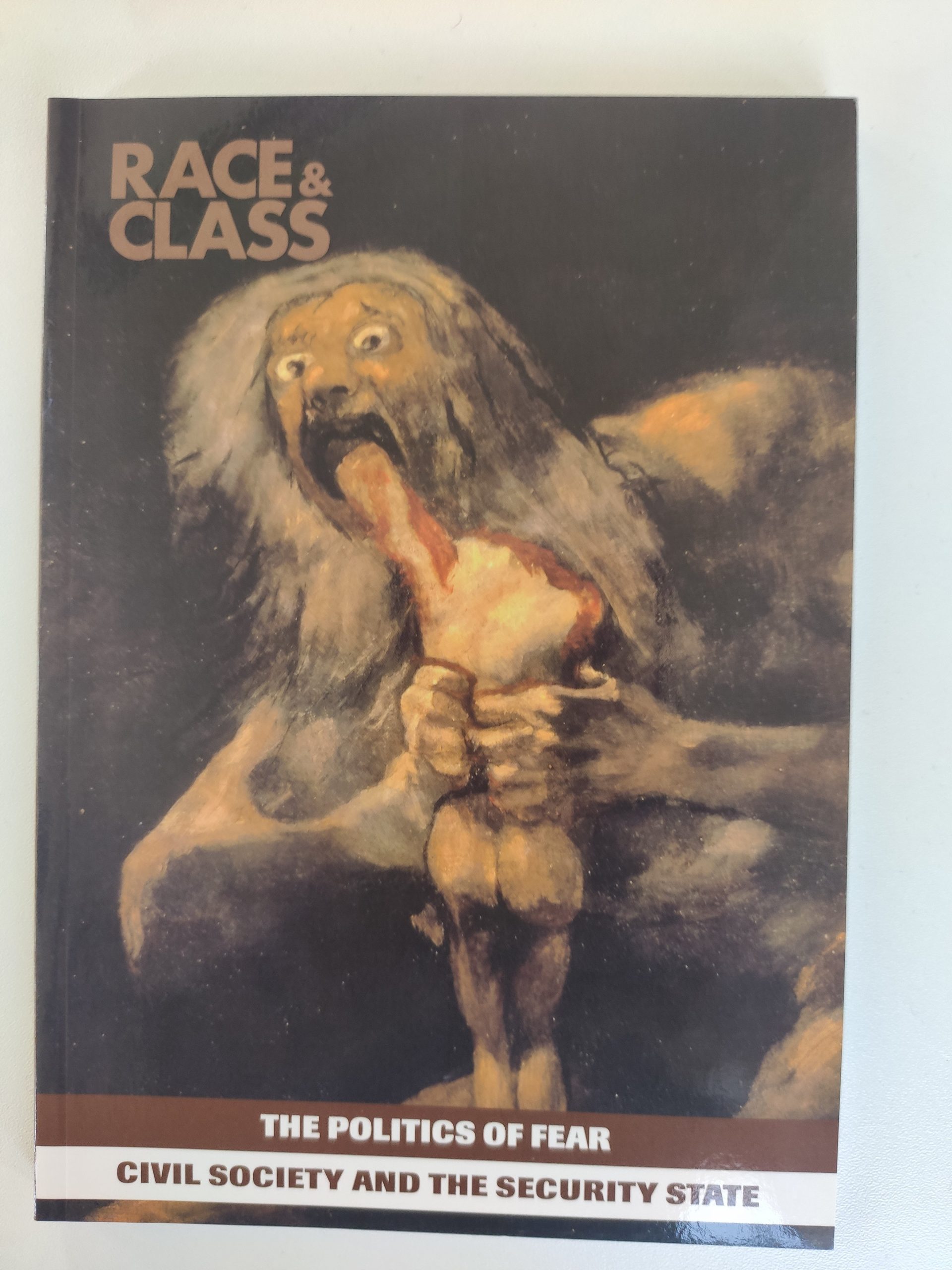Description
The ‘war on terror’, initiated by the US, taken up by its junior partners and promulgated across the globe, is having a seismic impact on the structures and institutions of civil society. In the process, it is remoulding, to an unprecedented degree, the conceptions of peace, liberty and security in western developed societies.
This special issue of Race & Class includes:
Anti-Muslim racism and the European security state by Liz Fekete
Across Europe, the ‘war on terror’ is having a major impact on race relations policies. New legislation, policing and counter-terrorist measures are casting Muslims, whether settled or immigrant, as the ‘enemy within’. In the process, the parameters of xeno-racism, which targets impoverished asylum seekers, have been extended to Muslim communities. Islam is seen as a threat to Europe, which is responding not only with draconian attacks on civil rights but also with moves to roll back multiculturalism and promote monocultural homogeneity through assimilation. Hence ‘integration’ measures – like France’s banning of the hijab – become an adjunct to anti-terrorist law. This is not so much ‘Islamophobia’ as structured anti-Muslim racism.
Liz Fekete is senior researcher on the European Race Audit of the Institute of Race Relations and the author of Reclaim People’s Security: from national security to global security: counter-terrorism in Asia and Europe (TNI, 2003).
The birth of public order policy by Magnus Hörnqvist
Over the last twenty years, the nature of the rule of law and the basis on which nation states employ force has been changing fundamentally. The distinction between what is criminal, to be dealt with by the legal and justice system, and what creates a ‘perception of insecurity’ – formerly to be dealt with by social policy – is being eroded at both the macro (‘war on terror’) and micro (‘public order’) levels. This paves the way for the unbridled use of state force in the first instance, and the criminalisation of behaviours that are not necessarily illegal, in the second. Fear becomes a controlling mechanism for the maintenance of the social order and any element of non-conformity is construed as a threat.
Magnus Hörnqvist is based at the department of criminology, Stockholm University, researching the new security paradigm and is also responsible for prisoner’s rights issues at RFHL, the Swedish national association for aid to drug addicts.
Development and the ‘global war on terror’ by Antonio Tujan, Audrey Gaughran and Howard Mollett
The war on terror is affecting developing countries and development policy and practice. The international focus on counter-terrorism and security has influenced aid allocations and the nature of donor co-operation with developing countries. Counter-terrorism is being used to justify practices that undermine the achievement of development goals and run contrary to international commitments on human rights. Increases in military aid and the export of arms are jeopardising human security and livelihoods in many parts of the world.
Antonio Tujan works with the Philippine NGO IBON, an education and development organisation committed to studying the socio-economic issues that confront Philippine society and exploring alternative solutions. Audrey Gaughran and Howard Mollett work with BOND, a network of UK-based NGOs working in international development and development education.
Sovereignty vs human rights or sovereignty and human rights? by Justin Conlon
What, post-cold war, are the implications of so-called humanitarian interventions for international law, the nation state and peoples’ rights? Is this a cover for imperialism or, in the era of globalisation, an essential widening of protection for human rights? The provisions of the UN Charter and related instruments are examined, together with the arguments in support of such interventions. That state sovereignty protects human rights by reducing the incidence of war and promoting self-determination and that military intervention can result in atrocities are often overlooked. Somalia, Haiti, Bosnia and the first Gulf War are among the examples discussed.
Justin Conlon is an immigration lawyer, based in New Haven, Connecticut, and working in the area of deportation and asylum.
The new American McCarthyism: policing thought about the Middle East by Joel Beinin
September 11 ushered in a sustained campaign by the American Right and the Bush administration to delegitimise critical thought about the Middle East, Islam and the Arab world. The Middle East Studies Association (MESA) has borne much of the brunt of this campaign, some of it conducted by think-tanks with close links to Israel’s ruling circles. Such attacks on MESA date back to 1967 and the Arab-Israeli war. The role of organisations such as ADL, AIPAC, AVOT and ACTA is examined, as is Campus Watch and the attempt to introduce legislation in 2003 to place under university-level Middle East studies under much closer government control (HR 3077).
Joel Beinin is Professor of Middle East History at Stanford University and a former President of the Middle East Studies Association of North America.
Wired for war: military technology and the politics of fear by Arun Kundnani
Through the influence of Project for the New American Century, the structure and thrust of US military power is being fundamentally reshaped, with massive increases in defence spending, the revival of ‘Star Wars’, the projected militarisation of space and constant technological innovation. The aim is ‘full spectrum dominance’ across the globe; one result is Iraq; another the widespread US public acceptance of pax Americana; yet another, the notion that war could be fought at virtually no human cost to US forces. If so, the last restraint on the US war machine would have been removed.
Arun Kundnani is the editor of IRR News, an online news service on race and refugee issues, and writes on technology, globalisation and immigration.
Also: Anti-Semitism or anti-criticism? A review article by Jenny Bourne
Jenny Bourne is researcher into race policy at the Institute of Race Relations and the author of Homelands of the mind: Jewish feminism and identity politics (IRR, 1987).
Related links
Race & Class: a journal on racism, empire and globalisation


